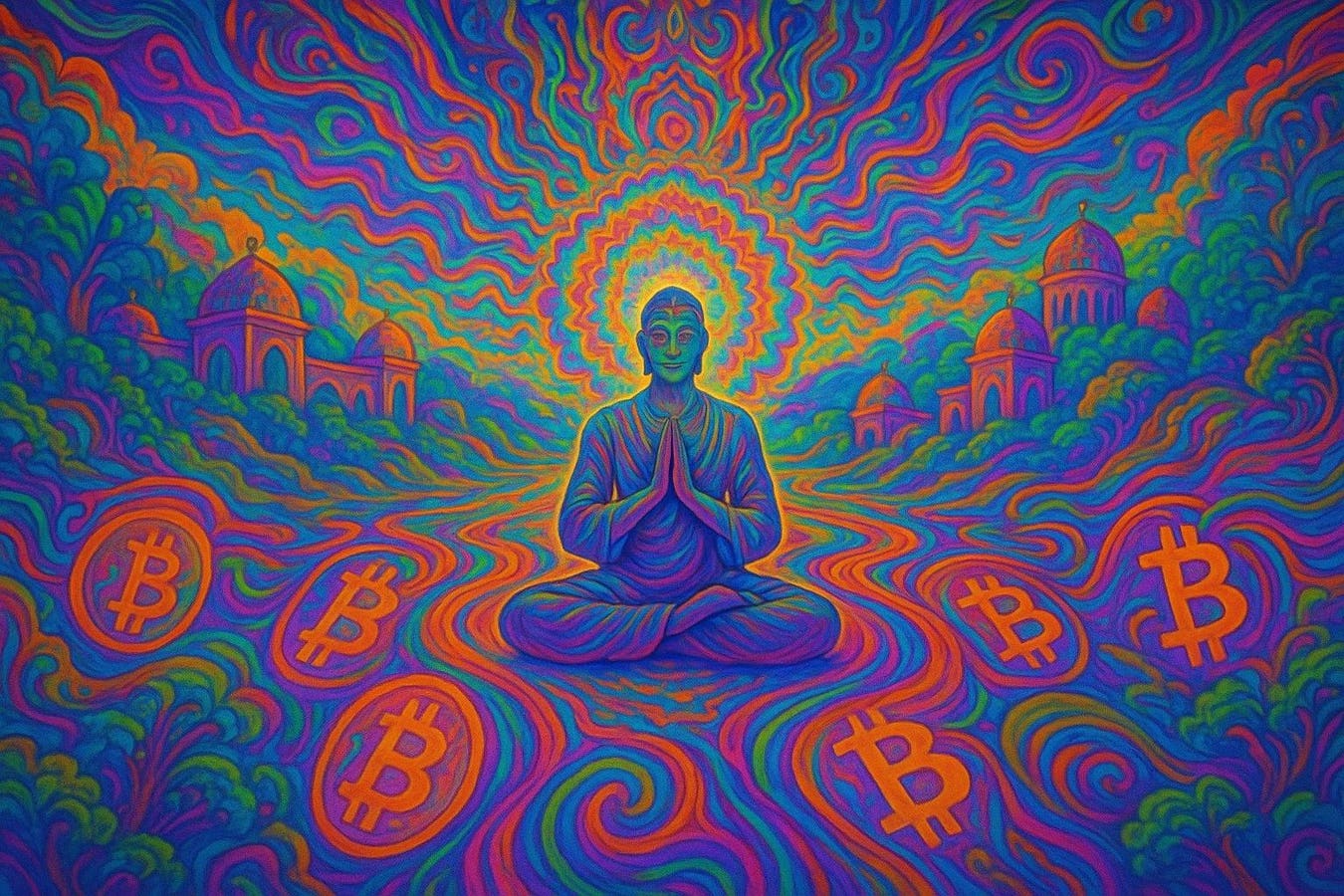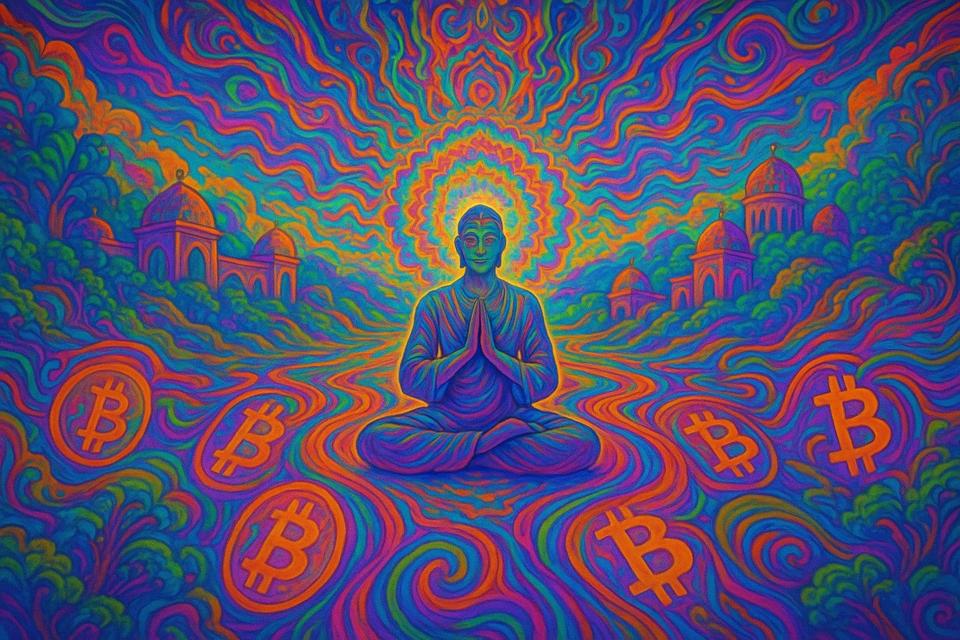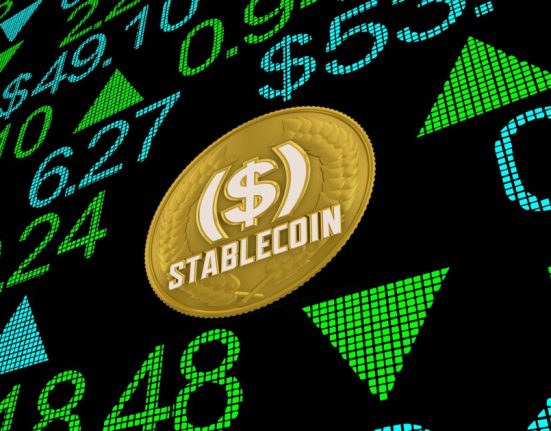A psychedelic vision of crypto spirituality, where meditation meets decentralization.
Deep in a coastal pocket of Montenegro, fog lingers over a makeshift village where the morning stillness is broken by the sound of meditative chants, laptop keystrokes, and the occasional impromptu DAO meeting. This is Zuzalu: an ephemeral, invite-only enclave dreamed up by Ethereum’s Vitalik Buterin, equal parts tech incubator and techno-spiritual crypto commune.
Attendees sip mushroom tea, debate the metaphysics of decentralization, and chart a new world, one block at a time. There are no signs, no sponsors, and no set agenda. There is just the conviction that something sacred is being built. Something more than money.
From Techno-Utopia to Techno-Spiritualism
But these crypto enclaves are not completely fringe. They are multiplying. From jungles in Central America to Latter-Day Saints compounds in Missouri, blockchain believers are gathering for what often resembles a cross between a startup retreat, a Burning Man temple camp, and a 1970s New Age awakening. Ayahuasca ceremonies or iconoclastic rituals are paired with token launches. Yoga flows into pitch decks. And enlightenment now comes with a whitepaper.
This raises an uneasy question: is this the dawn of a new techno-spiritual order, or is it just a very well-branded scam?
Crypto as Gospel, Alignment, and Exploitation
Crypto has always attracted zealots. Not just traders or developers, but those with a near-religious belief that code can liberate humanity from corruption, surveillance, and mediocrity. Add psychedelics, utopian architecture, and a distrust of fiat reality, and you do not just get a movement. You get a “mission.”
These retreats and micro-communities, Zuzalu included, present themselves not as vacations, but as experiments in post-nation-state living. Participants pay in ETH or stablecoins, sometimes via NFTs that act as passports. Workshops oscillate between talks on zk-rollups and quantum healing.
Even Ethereum itself has spiritual roots. Vitalik once mused about “ether” as the invisible medium for decentralized connection. To some, this is not metaphor, but gospel.
Crypto believers sometimes call this “the alignment era,” or “crypto alignment,” where code, consciousness, and capital converge. It is seen as a transitory movement designed to outgrow the old world.
While it is easy to dismiss these spaces as woo-woo playgrounds for the rich and bored, sometimes, they can be tools for exploitation.
Take NovaTechFX, led by a woman who called herself “Reverend CEO.” She blended Pentecostal-style sermons with promises of 3% weekly crypto returns. The SEC called it a Ponzi scheme. By the time it collapsed, nearly $1 billion was gone. These “sermon” tapes still circulate on YouTube.
Then there is INDXcoin, a Colorado-based “Christian crypto” that raised $3.4 million from churchgoers. Investors were promised divine favor and a safe return. What they got was an illiquid token and a founder who claimed, under oath, that God told him to launch it.
Cult, Scam, or Prototype for the Future?
Nevertheless, not all of these communities are fraudulent. Zuzalu is, by most accounts, earnest—idealistic, even. It birthed spin-off projects focused on digital identity, biotech, and governance. Its residents speak in a blend of code and philosophy, quoting Satoshi and Foucault in the same breath.
Even the psychedelic retreats, for all their cultish aesthetics, sometimes leave attendees with genuine breakthroughs of emotional clarity, entrepreneurial direction, or otherwise. Yet, there is a case to be made that these are just the messy early chapters of what could be a new civic structure.
If a nation-state was built on borders and banks, maybe a post-state emerges from wallets and vibes. But when do we start labeling these collectives as cults?
Do we consider the rituals? The charismatic founders? The token-gated access? Or the certainty of an unshakeable belief that this is the path to collective salvation, and everything else is FUD?
At the edge of a Zu village, one attendee lights sage over a hardware wallet. Someone else codes a smart contract barefoot in the grass. A startup founder with a shamanic tattoo explains how DAOs will replace democracy, and then invites you to a cacao ceremony.
Is this a scam? A new faith? Just a very weird off-site Web3 meet-up?
Maybe it is salvation. Or maybe it is a grift.
Maybe, like most things in Crypto, it is both.








